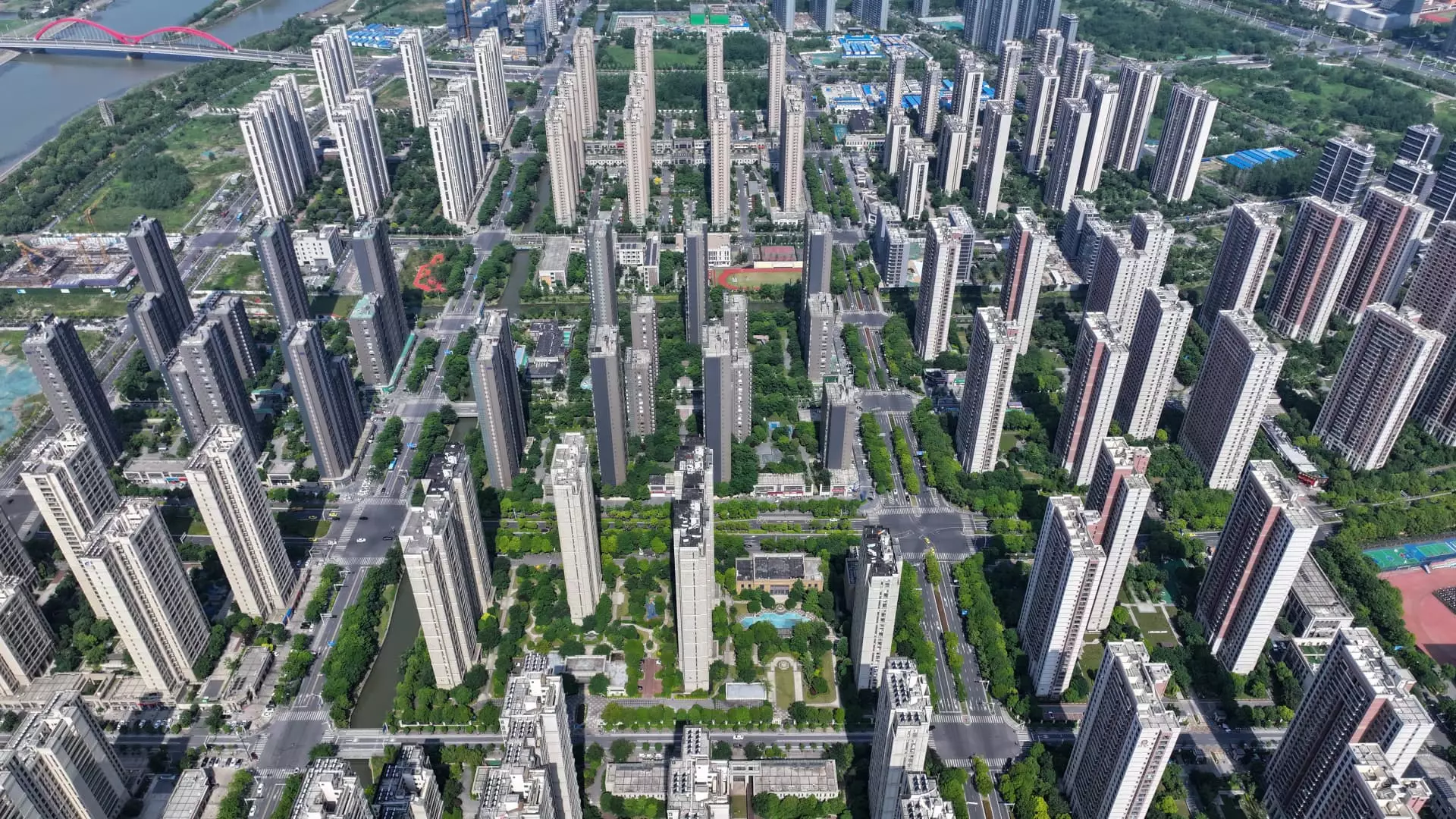In a notable shift, shares of various Chinese property stocks listed in Hong Kong have experienced a remarkable surge, reaching their highest valuations in over a year. This spike is largely attributed to the recent stimulus measures introduced by the Chinese government aimed at revitalizing the struggling real estate sector. With Longfor Group Holdings leading the charge with an impressive gain of over 25%, other notable developers such as Shimao Group and Kaisa Group have witnessed extraordinary increases of 87% and 40.48%, respectively. The broader Hang Seng Index also marked a substantial 6% rise, signaling growing investor optimism, particularly within the real estate segment.
Policy Responses and Market Reaction
In an effort to bolster homebuyer confidence, major Chinese cities have unveiled easing measures, highlighting a shift in regulatory stance that comes after a wave of policy stimulus from the central bank. For instance, Guangzhou has eliminated all restrictions on home purchases, while Shanghai has adjusted the required tax-paying period, allowing for swifter transactions. Moreover, Shenzhen’s decision to relax buying restrictions signals a broader initiative to stimulate demand in a sector that has been languishing over the past few years due to stringent borrowing constraints put in place by Beijing.
These developments have undoubtedly sparked interest among investors and contributed to the upswing in property stock prices. However, the impact of these measures remains a topic of debate, with analysts expressing skepticism about their potential to instigate a sustainable recovery.
Challenges Ahead for the Property Sector
Despite the positive movement in stock prices, underlying challenges continue to loom large over the Chinese real estate market. Analysts from Morgan Stanley have cautioned that the shortfall in housing demand is likely to persist, suggesting that lifting prices and momentum in demand will not come easily. With real estate historically accounting for a significant share—over 25%—of China’s GDP, the prolonged downturn that began in 2020 raises concerns about long-term recovery and growth targets.
Chinese authorities have initiated various support measures to ease financial strain on households and stabilize the property market. However, the lack of tangible results from previous initiatives casts doubt on the effectiveness of the current policies. Investors and stakeholders are left pondering whether the recent uptick represents a fleeting moment of market enthusiasm or a durable rebound fueled by genuine recovery catalysts.
While the recent rally in Hong Kong-listed Chinese property stocks has sparked optimism, the complexities of the real estate landscape cannot be overlooked. Investors are urged to exercise caution as the potential for a rebound hinges on more than just temporary regulatory easing. Without a significant and sustained revival in consumer demand, the property market may struggle to exceed expectations, thereby keeping growth trajectories in check for the foreseeable future. The coming weeks will undoubtedly test the resilience of the sector amidst evolving market dynamics and ongoing economic challenges.

